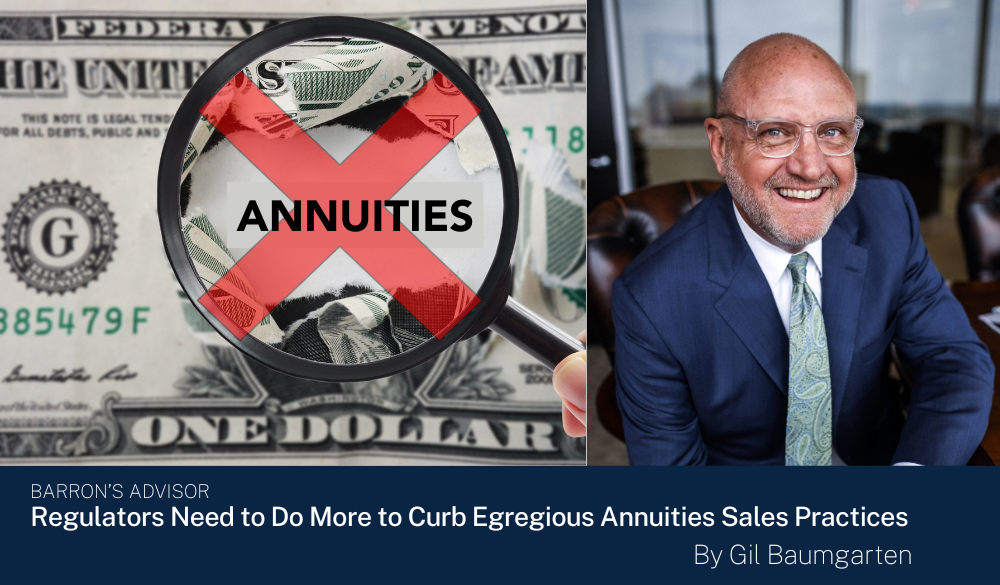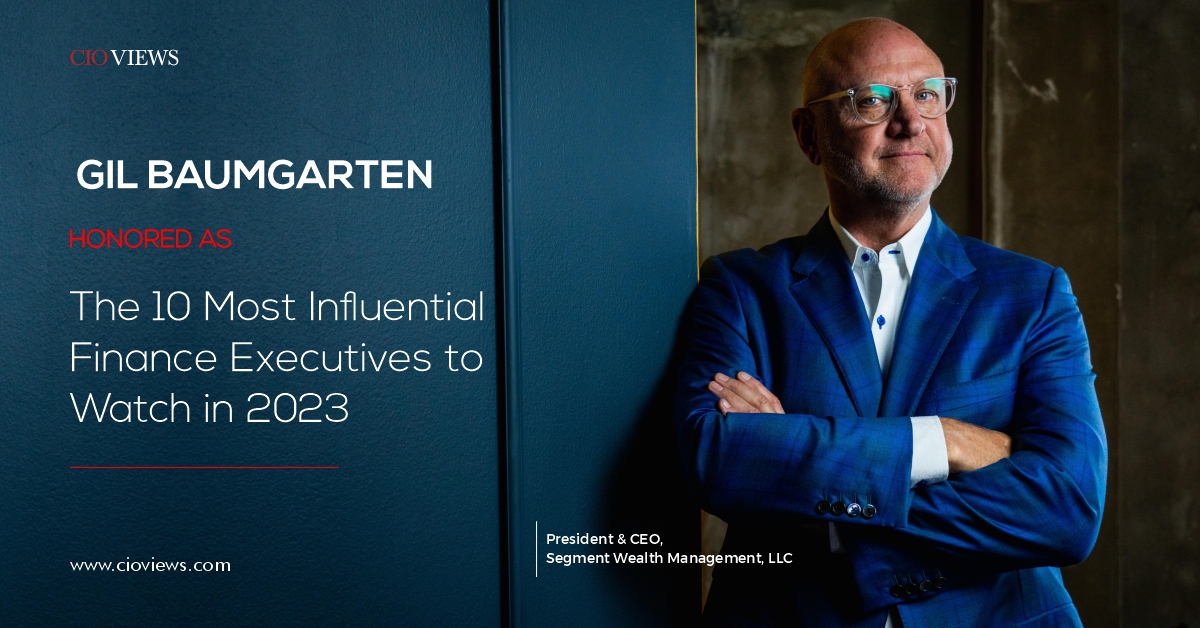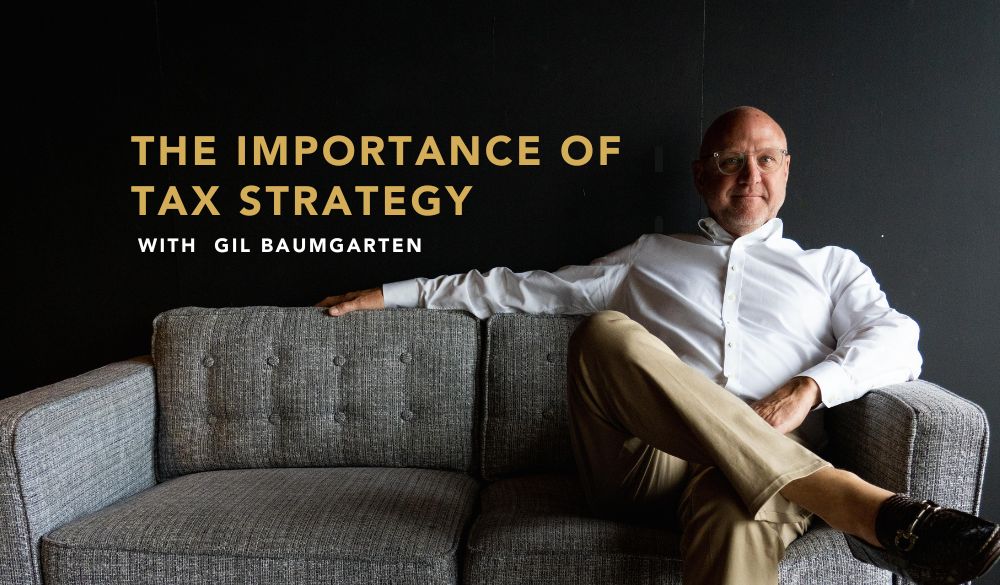Thoughts and musings from my desk to you.
The Intricacies of IRA Distributions: A Case Study of James Caan’s Hedge Fund Mishap
Investing, IRAsIndividual Retirement Accounts (IRAs) provide tax advantages for savers. However, managing these accounts can be a complex endeavor, particularly when it involves intricate investment vehicles like hedge funds. This complexity is exemplified in the case of the renowned actor James Caan and his investment in a hedge fund, which highlights the potential pitfalls of inadvertent IRA distributions.
Read MoreRegulators Need to Do More to Curb Egregious Annuities Sales Practices
Advisory Firm, IRAs“The Department of Labor is under pressure to release its new Retirement Security Rule, which would impose fiduciary obligations on more financial professionals working with retirement clients. But from my vantage point as a fiduciary advisor, regulators’ focus on individual retirement accounts overlooks more egregious activity in non-IRAs happening right under their noses. Particularly absent from the discussion about the rule are annuities sold by the insurance industry—often with punishing fees and commissions that slide by with little scrutiny.
Read MoreSmart Money? Maybe. Brilliant Money? Never.
funds, stock marketLike all industries, there is a pecking order in the investment arena, a hierarchy, if you will. At the top of the financial pyramid are the hedge fund and private equity businesses. At the base of the pyramid is the bank teller. While often grouped together, the hedge fund and private equity businesses are very different since hedge funds normally trade in listed securities that are available to everyone. In contrast, private equity is comprised of companies that don’t trade anywhere. Those listed securities in the hedge fund space could be options, stocks, preferreds, bonds, futures, and may or may not include leverage, or borrowed money.
Read MoreTax Efficiency: Vast Benefits Easily Overlooked
Tax StrategyTraditional investment advice normally focuses on allocation into buckets. These buckets could be traditional mutual funds, or ETFs, or managed accounts holding individual stocks. In most cases, the allocation buckets are tactically rearranged, and the securities within mutual funds and managed accounts are also actively rearranged.
Considering that studies like the SPIVA Report from Standard & Poor’s routinely show that the vast majority of active managers underperform their benchmarks over any discernable timeframe, it makes you wonder what master “traditional advice” is serving.
Read MoreChallenging the Status Quo
Advisory Firm, IRAs, Tax StrategyWe get puzzled looks from new clients when we explain our position on taxable fixed income (bonds) in IRAs. Traditional planning advice recommends placing your highest growth assets in an IRA to maximize the tax deferral. We usually recommend the complete opposite approach, which becomes more and more preferable the higher the income of the current or future retiree.
Read MoreStructured Notes Deconstructed
bonds, stock marketWe occasionally see portfolios come in for review containing structured notes. There are a wide variety of them, so I will speak generally. Not everything I will say applies to all, but likely most.
A structured note is a bond from a brokerage firm or sponsor which represents an underlying derivative. Most often, this derivative is a set of option contracts. The underlying derivative is what sets the parameters of upside vs. downside and can make them seem like a viable proposition.
Read MoreMarket Optimism
Investing, stock marketI’m a cynic when it comes to the nature of humans but an optimist when it comes to the nature of markets. To be a pessimist, I would have to believe that markets are somehow doomed or that people are irredeemable. Neither is true. And when I speak of being a human nature cynic, rest assured I’m putting myself in the same category. I’m not judging people from some lofty height; I’m in the muck with all the other sinners. However, I have a unique vantage point, and by observing my own mistakes and those of so many others, I have insight into what works and what doesn’t. One of my most strongly held and loudly professed beliefs is the wild advantage of sitting still.
Read MoreCOVER STORY: 10 Most Influential Finance Executives to Watch
Advisory FirmFrom Financial Advisor to Published Author: Gil Baumgarten’s Multi-Faceted Success
Our very own Gil Baumgarten was featured on CIO View’s May 2023 cover as an “Influential Finance Executive to Watch in 2023.” Gil shares the journey of his career, how to navigate the tax code, and his future plans for Segment Wealth Management.
Read MoreESG Shortcomings Are Exploitable
ESGThe impending recession that the bumbling federal reserve seems intent on creating will present some risks and some opportunities. While they signal that they may be finished with hiking rates, current employment numbers are still too high, and the Fed will hike until they break something. One could argue that the first cracks are showing in the banking business.
Read MoreThe Importance of Tax Strategy
Advisory Firm, Tax StrategyJust in time for Tax Day 2023, Gil talks tax strategy with the Houston Business Journal.
“With tax season upon us, it seems an appropriate time to discuss tax strategy with a local specialist. Investors might assume that the frontline professionals for advanced tax strategy are CPAs. However, some investors find that their CPAs work retroactively, focusing on preparing tax returns more than strategizing with their clients about optimal ways to reduce or eliminate taxes. Our highlighted executive today is not a CPA but has four decades of investing experience while navigating IRS rules and has developed a reputation as a specialist in reducing tax friction in his clients’ investment portfolios.”
Read More









